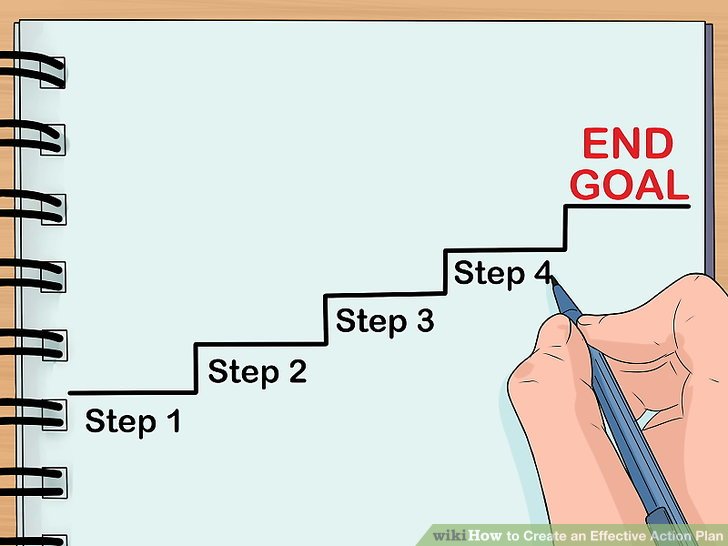“With this whole pandemic going on and school being online now, I’m finding it hard to do any work with there being so many distractions.
And since everything’s on the computer, I can’t just go somewhere else in my house to get away from the distractions of video games. »
Do procrastination and organizational difficulties sound familiar to you?
Setting up a strong foundation for working remotely with so many distractions around and little motivation is a challenge. There is no one to hold you accountable and It requires self-discipline: organizing, building a routine of focus, dealing with Distractions, Prioritizing, fighting inertia to start or finish.
No wonder many people get confused.
What is the problem?
You will find plenty of resources that tell you which tools to use:
build routine
wake up earlier
Use Pomodoro techniques
They list a bunch of methods, But they don’t tell you how to get there gradually taking into account what you already have to do.
This is not enough. When You are trying to build a complex organizational system, with different kinds of activities going on simultaneously, Each element should fit cohesively with others, like pieces of a puzzle. Otherwise, the entire system will fall down.
How you proceed to ramp up will determine if you quit or continue.
This is a journey with many mistakes along the way
Mistake 1: you focus on managing your time instead of managing your energy.
Many people complain there are wasting their time during the day.
They complain that they didn’t achieve something meaningful.
It is because they focus on time management. They neglect The energy component.
Energy management represents the level of focus you invest in doing something.
The wrong question:
When I am going to perform task_A tomorrow?
The good question:
How do I make sure to set up good conditions to enter the right state for achieving task A ?
How can I improve to enter this state quickly and easily?
If I can’t enter this state, which rules can I follow to avoid wasting energy?
Mistake 2: trying to optimize everything at the same time
Optimizing for something means that you make a conscious choice to prioritize for a category of tasks.
It means that you make the conscious decision to sacrifice other activities when you don’t have enough resources.
Once this choice is clear within your mind, you simplify your decision process.
Many people are trying to optimize for everything at the same time.
No wonder they end up overwhelmed.
Let ‘s consider the case of a student who is behind on his schedule.
He wants to make sure he can deliver his homework tomorrow
He is worried about the exams coming in three months.
He is worried about applying to jobs.
If he wants to perform very well in each of these areas from day 1, it will become a nightmare.
Mistake 3: You want to know the entire picture before you start moving On
I remember the times I transitioned for 9-5 job to freelancing few years ago.
I literally took a pen and paper and started to figure out mentally how I could insert every activity I wanted to do in a weekly schedule.
It was like trying to solve systems of problems with multiple constraints.
When I thought I had a solution for one problem, I automatically discovered this created serious conflict with constraints related to other problems.
Then I restarted again from another angle. And so on until I get tired and bored.
The problem is It burns too much energy for No concrete results.
What you should do instead is to start with a rough imperfect image of the puzzle (see article: start with what you have)
Solution
Step 1: Define a strategy: What do you want to optimize for?
Step 2: Trigger Deep work sessions
Step 3: Set up Average work sessions
Step 4: Have Unscheduled sessions for improvisation
Step 5: Build Associations of activities
We will go deep in each Step in a series of articles.
Step 1: Define a strategy: What do you want to optimize for?
There 4 types of tasks You can do:
Short term urgencies: what should I do now To deliver something to someone in the nearest future?
Long term outcomes: What should I do now to prepare for delivering something to someone in the far future?
Bridge routine/ habits: What should I do Now to build consistency in preparing the execution for short urgencies/ long term outcomes
Productivity debt: What should I do now to “payback” what I have accumulated because of previous decisions to go fast despite imperfection. (see https://medium.com/@brunosan/we-need-to-talk-about-productivity-debt-c711a593c6c7)
What do you want to optimize for?
The wrong way
“I want to perform well in this …., in that,… and this too.”
The good way:
“I am going to optimize for Long term needs.
So I will secure my golden moment for doing anything that brings me closer to ….”
Example:
Our team upgrade recently and my workload increases.
That means many meetings, reports, written communication, accountability.
There are certain tasks going on that I need to continue doing.
There are certain tasks I stopped that I need to restart doing: writing articles, answering questions
There are certain tasks I create to anticipate the future: learning.
So I need to level up my game and build a new organizational system that allows me to juggle all this together
Where do I start? I choose to optimize for bridges: setting up habits
When it comes down to writing articles, I focus on strictly writing during allocated time blocks rather than writing at speed.
It means that I focus on waking up at the same time rather than waking up in a good mood.
It means I focus occupying the same places for the same activities rather than doing these activities at high speed
That’s it for Step 1:
In the next article, we will learn how to build the cornerstone of your organizational system: Deep work sessions
Why and how to set up Deep work sessions first?
DO you have a question, maybe I can help
Heudou Tchihikou Aubin
A master chronic procrastinator who chose to execute on his dreams because of frustration and self-criticism




